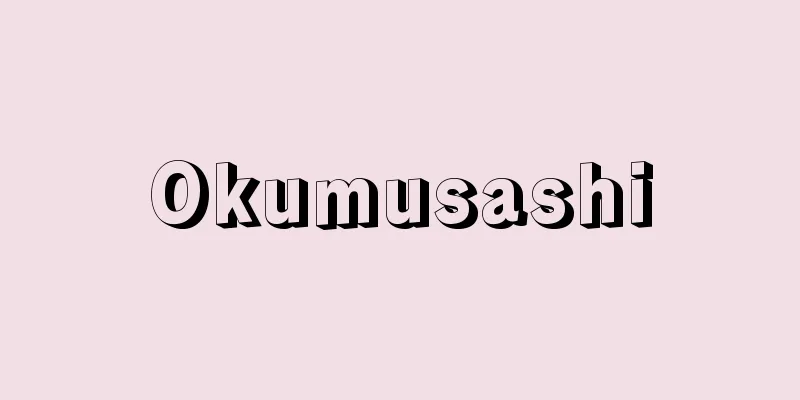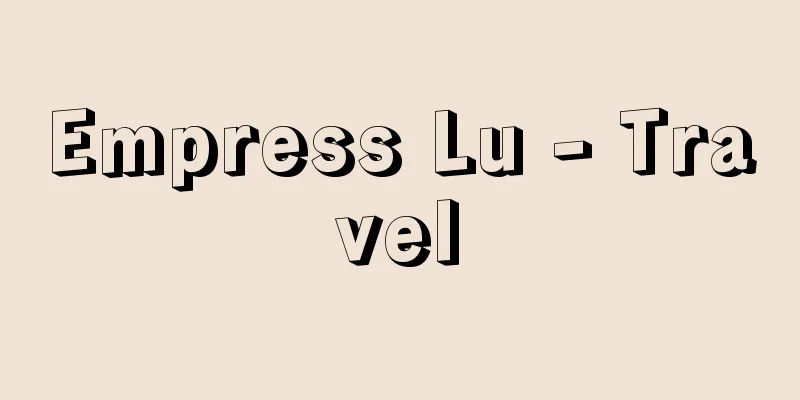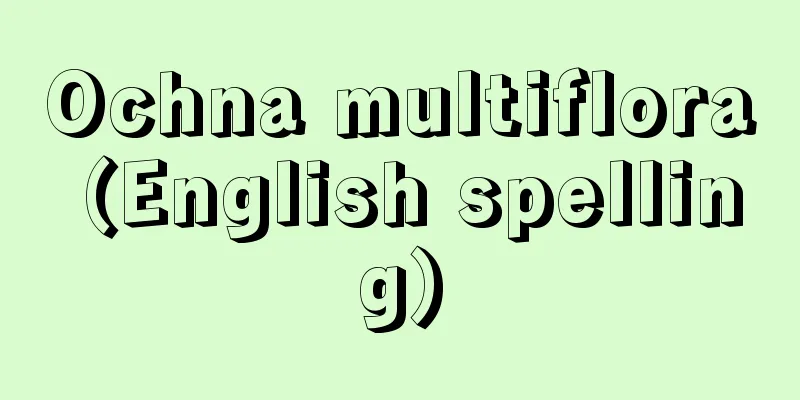OUTSURI - Otsuri

|
...In some regions, gifts in general are called tobi, but this is said to be derived from tabe, meaning a gift from the gods, and the gift-giving behavior of the Japanese is rooted in ancient beliefs. The customs of sending food to those absent from a meal, such as sending food to those who are absent, and of wrapping food for attendees to take to their families, and of sharing food, are ways of expanding the effect of eating together. The customs of returning a gift container called otsuri, otobi, or otame, leaving a little bit of food behind, or returning a piece of paper or matches inside, are thought to be remnants of the etiquette of eating together by passing around a piece of food, just like the custom of leaving a little bit of rice when replacing it. It is said that the custom of adding bamboo grass or nandina leaves to food gifts is a remnant of the old days when leaves were used as tableware, or to ward off evil spirits. From 【Souvenirs】…However, the theory that it was Miyake has been supported based on its contents. Ke means a container, and Miyake means a vessel given by a god. Also, one of the characteristics of Japanese gift-giving customs is called Otsuri, where a person returns a vessel containing a gift with some food left in it. In some regions, this is called Miyage or Kaerimiyage, so it is interpreted that Miyage originally meant something that was brought down as an offering to the gods for a divine banquet. It is also believed that the character Souvenir was used for Miyage after the end of the Muromachi period, when the custom of giving local specialties as gifts began to take hold. … *Some of the terminology that mentions "Outsurii" is listed below. Source | Heibonsha World Encyclopedia 2nd Edition | Information |
|
…また贈物一般をトビと呼ぶ地方もあるが,これは〈賜(た)べ〉に由来し神からの賜物を意味すると説かれており,日本人の贈答行為は古来よりの信仰に根ざしたものといえる。会食に欠席した者に食物を送り届ける〈送り膳〉や出席者にもその家族へ食物を包み持たせるならわしまたおすそ分けなどは共食の効果を広げるものであり,オウツリとかオトビ,オタメと称し贈物を入れてきた器に食物を少し取り残して返したり半紙やマッチなどを入れて返すしきたりは,御飯を少し残してお代りする習慣同様,一つの食物を移し回していただき合う共食の作法を残したものとみられる。なお食物贈与にササやナンテンの葉を添えるのは古く葉を食器として使った名残とか魔よけのためといわれている。… 【土産】より…ただ従来その内容から宮笥(みやけ)とする説が支持されてきた。笥(け)はいれもののことで,宮笥とは神から授かった器といった意味であり,また日本の贈答習俗の特徴の一つにオウツリと称し,贈物を入れてきた器に食物を少し取り残して返すならわしがあるが,これをミヤゲとかカエリミヤゲと呼ぶ地方もあることから,本来みやげとは神人相饗のため神に捧げたものを下ろしてきたものの意ではないかと解されている。またみやげに土産の字を当てるようになったのは室町末以降のこととされ,このころより土地の名産を強いて求めて贈る風が生まれた。… ※「オウツリ」について言及している用語解説の一部を掲載しています。 出典|株式会社平凡社世界大百科事典 第2版について | 情報 |
<<: "The Book of Wang Zhennong"
Recommend
Ebirashida - Ebirashida
… G . jessoensis (Koidz.) Koidz. grows well on li...
Lanital (English spelling)
Casein fiber is made from casein, a milk protein. ...
Didermoceros sumatrensis (English spelling) Didermocerossumatrensis
…Another possible survivor is the Leuser Conserva...
"Enri-Tsurujutsu" - Enri-Tsurujutsu
…Around the same time, Takebe discovered a binomi...
Tororo Konbu - Tororo Konbu
A type of kelp product. Kelp is sprinkled with vi...
MacNeice
British poet. Along with Auden and Spender, he is ...
Transportation (English)
The movement of people or things from one point t...
Guest - Host
It was one of the traditional commercial instituti...
The Legend of Camisard
In 1904, the rebellion fell victim to a plot by M...
Miaodigou ruins - Miaodigou ruins
This is the standard site for the Miaodigou Type ...
Survivor's pension - Izoku Nenkin
When an insured person who was the breadwinner di...
Kidney stones
This refers to urinary stones in the renal pelvis...
Isolation Mechanism
...Thus, in the 19th century, the role that isola...
Indicator variegatus
… [Takashi Saito]. . . *Some of the terminology e...
Aloe hawalltioides - Aloe hawalltioides
…It is found in the wild along the Mediterranean ...









